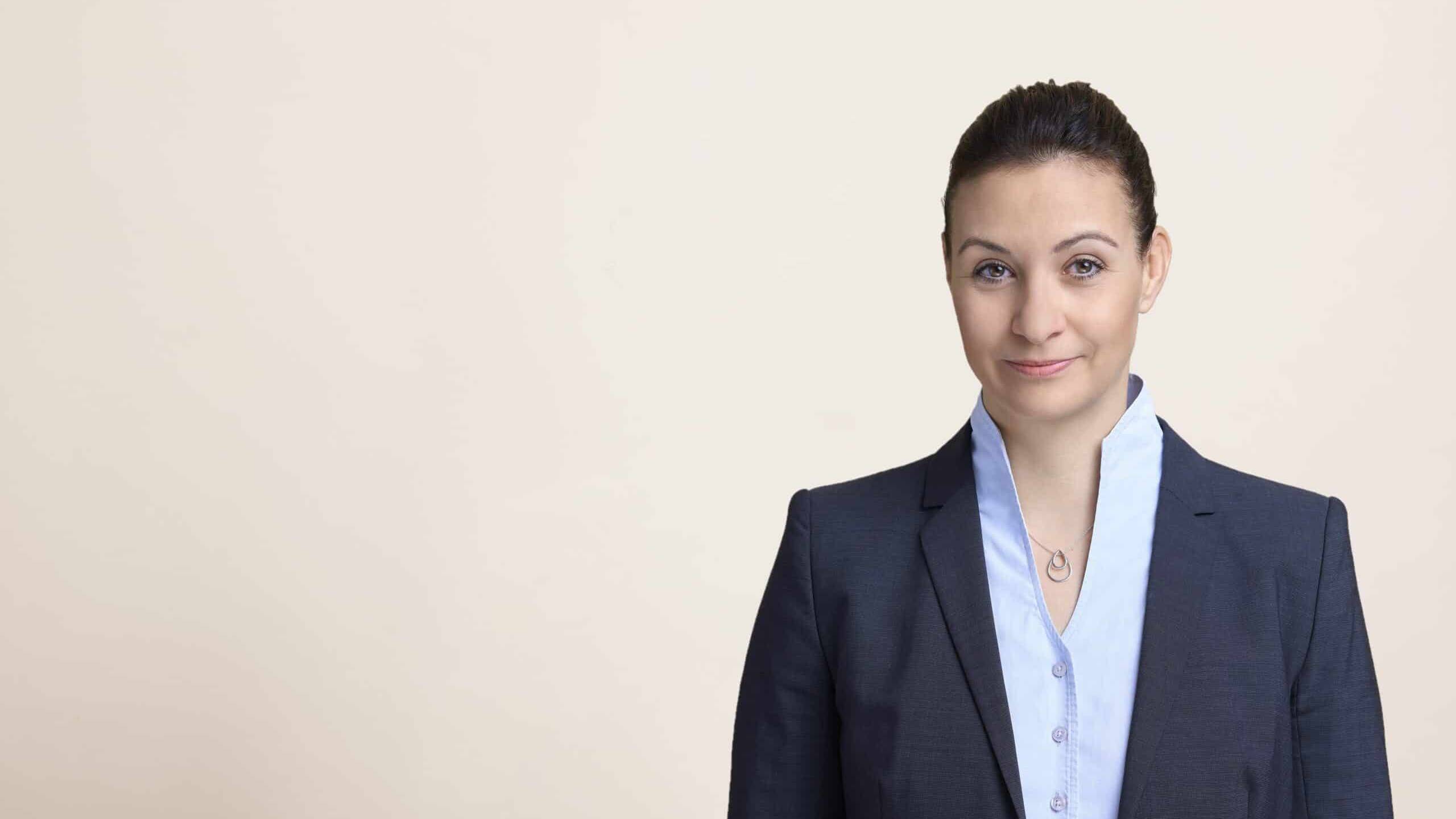Annette Heimlicher is CEO of the Swiss high-tech sensor company Contrinex. In this interview, she talks about the importance of innovation and why she invests in startups.

CEO, Contrinex
Annette joined Contrinex in 2005 as Business Development Manager for Industrial Safety, subsequently serving as Corporate Development Manager before taking over the family firm as owner and CEO in 2012. She previously worked as Associate Director at the World Economic Forum. Annette studied Economics in Geneva and at the London School of Economics.
Contrinex is a global technology leader in smart sensors for complex automation and smart factory applications. The company was founded in 1972 by ETH alumnus Peter Heimlicher, and has grown from a one-man operation to a multinational group with over 500 employees worldwide. Contrinex is the market leader for miniature sensors, sensors with long operating distances, and devices for particularly demanding operating conditions.
In 2012, Annette Heimlicher took over the CEO role at the age of 35.
What significance does innovation have for your company Contrinex?
It is of paramount importance and ensures our standing in the market today and in the future. As CEO, I deal with many different topics. Operational issues are always present, and the supply chain needs to be managed. But pure innovation is what I really enjoy doing. Developing new products in close collaboration with our clients is what brings me joy.
Contrinex is already a market leader in specific types of sensors and has a product portfolio of over 6000 products. What more can you still do?
This high number is really just an expression of different variants of around 200 core products. And those are based on a very manageable pool of around 20 technology platforms. Those different technologies that we master are like different colors in a paint box. Our CTO and I are trying to add new colors and combine them with what we already have. A broad driver of innovation has been the digitalization of sensor data. It centers around converting analog data to digital, transmitting it, and in some cases, also applying edge computing technologies to it. This development started 20 years ago, and there are still countless possibilities to explore. The only limitation is the amount of money that we can invest in innovation.
Innovation is not an end in itself. What do your clients want to achieve?
Our clients want to make mechanical processes smarter. Take a mechanical engineering company, for example. They want to better measure what the machines they build are doing, how long they are running, control signs of wear, or know if the machines are used outside of their specifications. We help them to do this. As a leader in this field of smart sensors, we need a thorough understanding of what processes and products the machines of our clients are used for, and then we come up with creative solutions to make them more intelligent. Contrinex has developed a lot of experience in this regard over the past 50 years.
In an interview with Verve, Prof. Kammerlander said that family firms tend to be risk-averse and shy away from big investments in new and unproven technologies. They tend to use their established team and processes to get better at what they do, which is incremental innovation. Do you agree with this statement?
She is right. No business owner in their right mind would risk their established company for an innovation project. Startups that are externally financed are better at taking big technological bets. In a way, it is no tragedy if they fail at that. I, however, as the owner of the business, take risks with my own capital, which is why they tend to be more measured. In the end, it is one of the luxuries of an entrepreneur to take risks. Personally, I am very passionate about ambitious innovation projects.
Why is that?
It has to do with my age, I guess. My time horizon is very long, still. It’s different when you’re approaching retirement, then you play it safe. But I still want to change and shape things, and I feel like the sky is the limit. I’m not interested in only managing existing processes. Where is the fun in that?

Invest in Startups
As one of Europe’s most active venture capital investors, we grant qualified private investors access to top-tier European startups. With investments starting at EUR/CHF 10’000, you can build your own tailored portfolio over time and diversify across stages and sectors.
As you said, startups are suited to developing disruptive technologies. You privately invest in startups with Verve Ventures. Why?
Because it is so incredibly interesting and I’m so enthusiastic about new things. I’d invest in almost every new startup on Verve’s platform if I had the budget for it. There are so many promising ideas and entrepreneurs with a lot of determination that it is quite difficult to choose between different projects. The founders of startups are ready to put all of their time and energy into something they believe in and sacrifice a lot of other things for it. I respect that and want to be part of it. Look around, it’s so much easier today not to make a big effort and still live quite comfortably. By investing in startups, I help entrepreneurs take a shot at big dreams. That is my main motivation, even though I also consider it an interesting financial investment.
There are many different ways to invest in startups. You can invest in funds or become an active business angel. You choose to invest via Verve Ventures, which gives you access to a curated flow of startups. What made you choose this way?
For me and plenty of other investors, Verve is the best option because the investment process is straightforward. I don’t want to lose a lot of time by looking at countless pitches before I can identify a startup that is worth investing in. With Verve, I can look at interesting startups that have already passed professional due diligence. The way Verve presents the startups also contributes to a sense of identity or identification with the stories of startups. When I visit Verve’s platform, the investment opportunities, for me, are like books on the shelves of a library. You log in and read the ones that speak to you. I think Verve has found a good balance between presenting investments in a neutral way but also engaging the emotions of investors. For startups, it makes them much more approachable to people who don’t have millions to invest or a lot of specific know-how in an industry.
How did you learn about Verve Ventures?
I used to live in Zurich and have friends in the banking industry and they told me about it. There are a lot of people in Zurich that think and talk about investing all day long. If you’re not part of that world or don’t know anyone in it, it’s more difficult to get exposed to these ideas. You might end up investing in very traditional ways, say, in a vacation home instead. The idea of Verve to democratize the investment into startups, to make them accessible to people outside of this bubble, on the same terms, is what I really like. Investing in startups shouldn’t be the privilege of a select few insiders.
Why aren’t more people investing in startups in general?
If you think about who owns the largest wealth it’s the generation of the baby boomers. This generation is retired but still fit, but the message about investing in startups hasn’t reached them yet. I also don’t think that they would want to invest directly in startups on their own. But having a choice of preselected startups would be attractive to them, I think.
Are startups also relevant to your business?
We are invested in a startup that is active in a related field of activity and enjoy the collaboration with them. Other than that, I spend about a day a month with our CTO to stay on top of technological developments, including new technologies developed by startups. We visit companies and do research, the process is rather opportunistic. As I said, we have a big hunger for innovation, but we also have to say no to many interesting projects. Our pace of innovation is limited by our ability to commercialize products. It’s great to have a functioning prototype of a new product, but most work and investment starts only at that point. You need to buy injection molds and other means of production, produce for initial stock, establish marketing material, train your workforce and identify and win customers. In short, any form of innovation creates a mountain of work. This is why, at Contrinex, we need to be fast and innovative but also prudent and selective at the same time.
Written by
WITH US, YOU CANCO-INVEST IN DEEP TECH STARTUPS

Verve's investor network
With annual investments of EUR 60-70 mio, we belong to the top 10% most active startup investors in Europe. We therefore get you into competitive financing rounds alongside other world-class venture capital funds.
We empower you to build your individual portfolio.
More News
29.06.2023
“Startups allow me
to stay on top of technological developments”
In this interview, C-level executive Ines Kljucar explains why learning is an important reason to invest in startups. She advocates for diversification of one‘s investment strategy and sees startups as one important pillar of it.
08.06.2023
“I am fascinated by venture capital”
Verve Ventures is proud to announce that Martin Scholl, one of Switzerland's most reputable bankers, is joining its board of directors. In this interview, he explains why he is also one of Verve’s most active private investors, and why startups are a very rewarding asset class.
27.02.2023
Illiquidity: Overcoming the main fear of startup investing
Many people who would like to invest in startups are held back by one thing: They are afraid to commit capital for several years. In this article, we look at the best strategies you can use to overcome this problem.
Startups,Innovation andVenture Capital
Sign up to receive our weekly newsletter and learn about investing in technologies that are changing the world.




